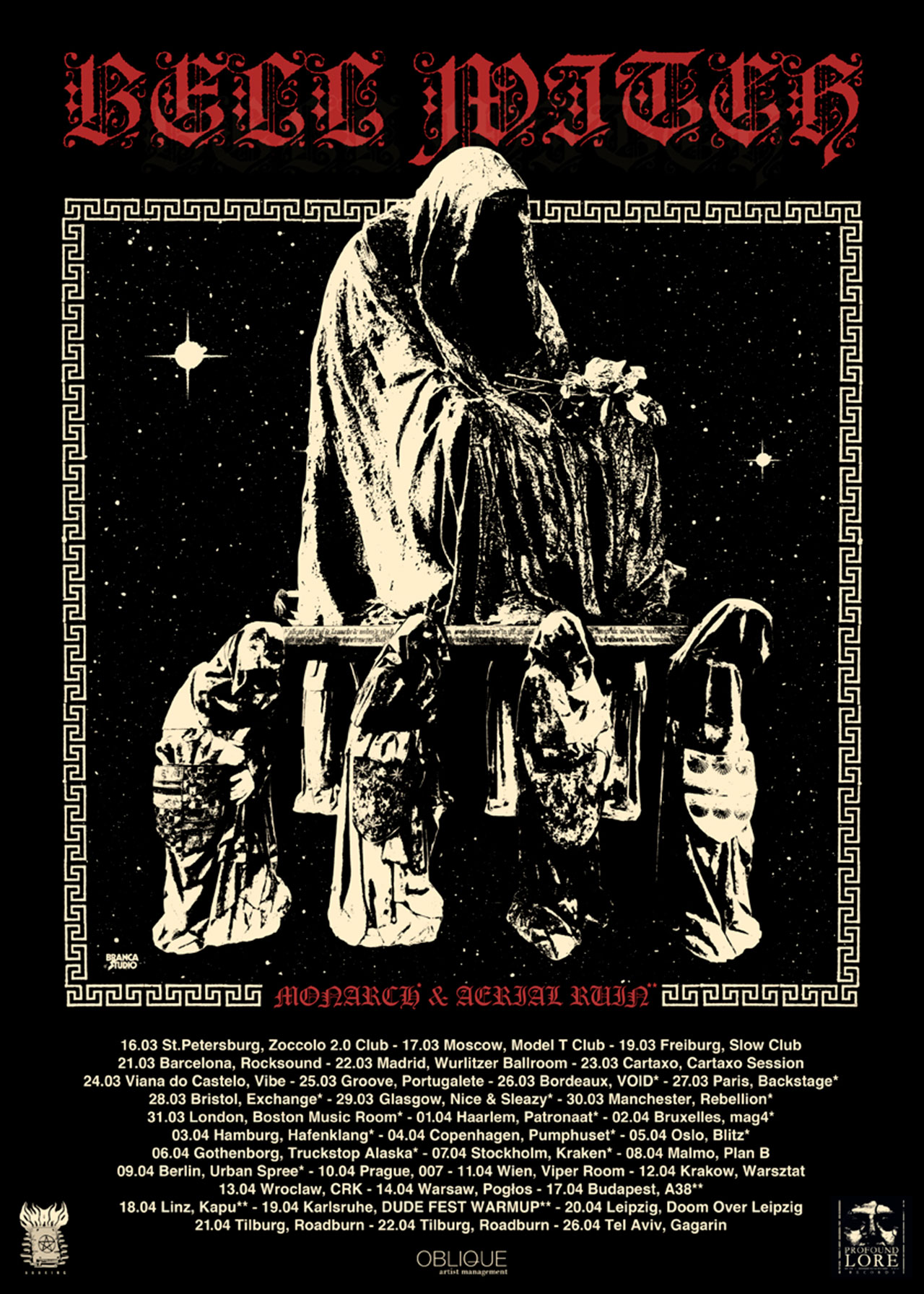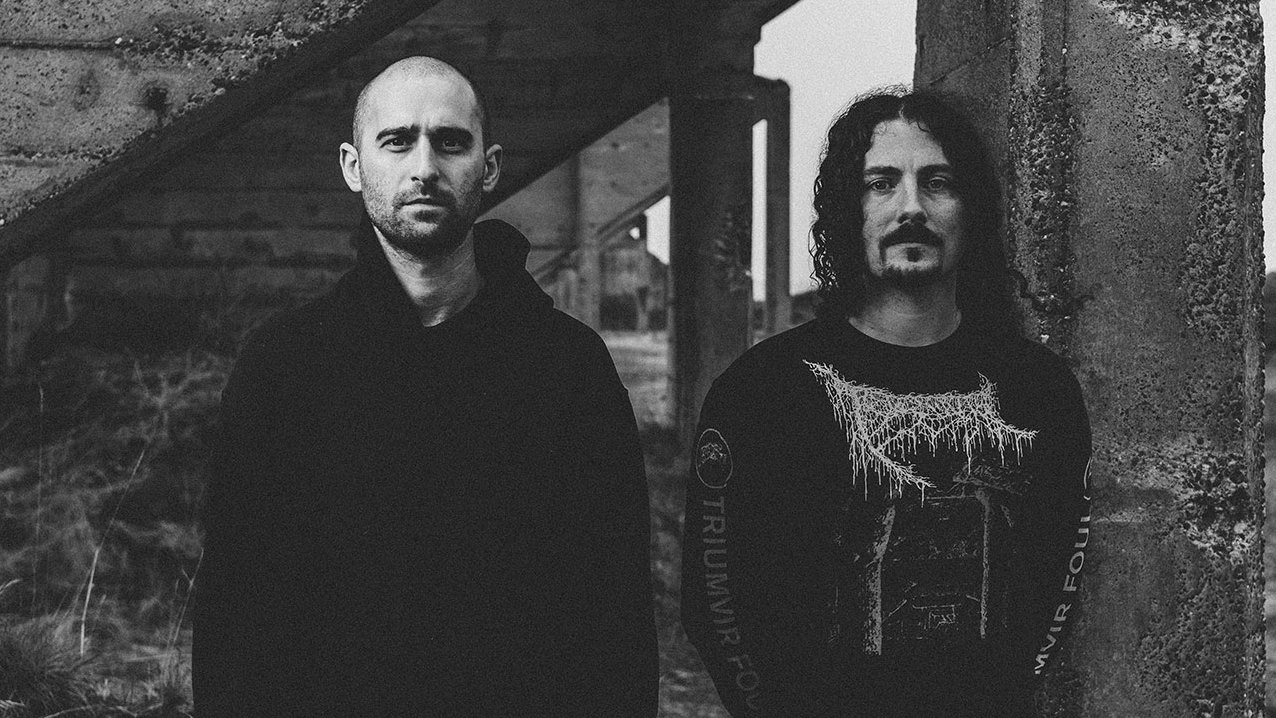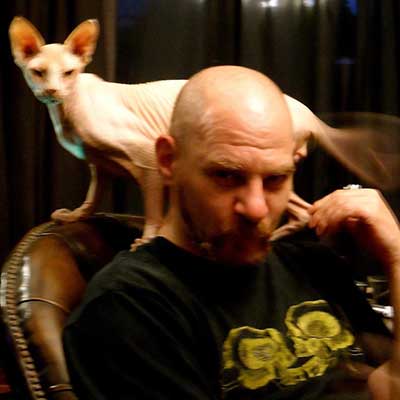Containing one single track and running for a total of 83 minutes, Seattle duo Bell Witch’s third album, Mirror Reaper – out now via Profound Lore – was always going to be a gargantuan undertaking. But when former member Adrian Guerra passed away in May 2016, during the recording sessions for Mirror Reaper, that task became more arduous still.
Bell Witch play funeral doom – vast, reverberating yet emotionally eviscerated riffs whose solemn procession through the soul’s Hadean hinterlands take the scenic route to redemption. Over the course of the two movements, titled As Above and So Below, named after the ancient Hermetic axiom, both vocalist/bassist Dylan Desmond and co-vocalist/drummer/organist Jesse Shreibman journey through a gravity well where currents of dread and grandeur whorl with stately graces around the band’s ongoing – and now more pertinent – theme of spirits while featuring guest spots from metal/acoustic artist Erik Moggridge, and, in tribute to Adrian, vocal passages recorded for Bell Witch’s previous album, Four Phantoms.
Having secured a berth at Tilburg’s revered Roadburn festival in April, the band have also announced a huge European tour with dates in Bristol, Glasgow, Manchester and London from March 28-31 (see tour poster below). We decided to mark the occasion to talk to both Dylan and Jesse about ghosts, loss, discovering the wholeness of all things, and more…
You’ve written long tracks before, but obviously Mirror Reaper is on another level in that regard. How long did it take to construct, and was this a different kind of endeavour to composing for previous albums?
Dylan Desmond: “We wrote Mirror Reaper roughly over a period of a year and a half. In many ways it was the same process as writing any other song, but an elongation of the timeframe. The conceptual element of the record was different for me in some ways. Four Phantoms was constructed to be two pieces with two movements per piece, and something of that nature was the original intent for Mirror Reaper. As it came together, it became obvious to both of us that it was much more of a solid whole as opposed to divided pieces, as previous works had been. As with most Bell Witch songs, Mirror Reaper is constructed around a loom of structural themes. A different aspect in it is that it seldom strays too far away from that collection of themes, as other songs have sometimes done.”
How much of it was down to improvisation and how much of the dynamics of the album did you have mapped out before you started recording?
Dylan: “All of the individual tracking dynamic were done on the spot, but all within a planned frame of reference. The song was written to flow from peaks to valleys. At the flip point of the song, or the beginning of the second CD, the heavy drums drop and there is a passage of clean bass and Erik Moggridge’s vocals. While that section was clearly mapped out on a structural level, the dynamic shifts were improvised, as well as some of Erik’s vocals.”
The phrase ‘As Above, So Below’ was a core theme for Mirror Reaper. Why is this axiom so central to occult thought, and what was its personal resonance for you?
Dylan: “While I’m definitely not a spokesperson for occult thought or occultism, I believe the phrase is central to it because it explains a connection or wholeness between everything. It identifies obvious divisions while also acknowledging polar connections within them. To me, the phrase incorporates all elements of life/death and maybe even the opposite of that specific dichotomy into a more full compass. We wanted to explore that conceptual theme in the song, as it has parallels with the band’s conceptual theme.”
Jesse Shreibman: “The Hermetic Principles and all of its axioms are not only central to occult thought, but they are an integral starting point of western philosophy and science as well. These principles, and particularly the ‘As Above, So Below’ axiom, were a way for ancient minds to explain natural and cultural phenomenon that were beyond the grasp of the academics that existed at that time in history. The Hermetic principles have so much resonance for me, as well as people thousands of years after they were written, because the ideas of the cyclical nature of the world – whether concerning ethics, or natural phenomenon – are timeless, universal themes that present themselves over and over. It is hard to deny the existence of the dichotomies present in our everyday lives.”
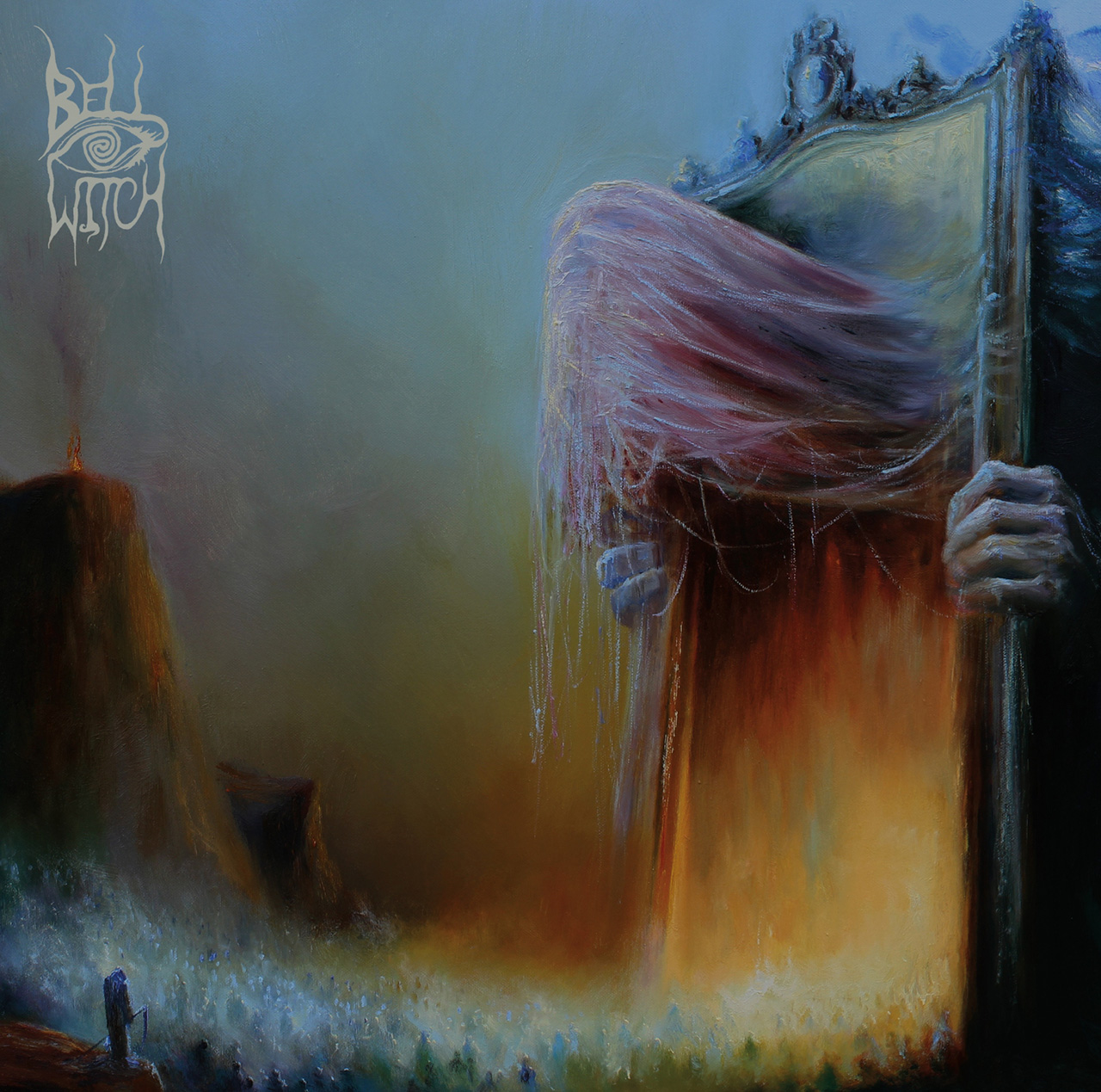
A lot of what you can call funeral doom tends to focus on the existential aspect, on awareness of a void and being engulfed, but Mirror Reaper also has a very deeply personal sense to it. How conscious were you of the relationship between those two aspects, and did that have any bearing of the ‘As Above, So Below’ theme?
Dylan: “These two aspects are dependent on each other in many regards, and it was very much a part of the project to loom them together. The lyrical theme is a sort of masochistic begging for these aspects to be loomed together, even. I’m of the opinion that funeral doom is generally focused on an aspect of death or dying. The waking confusion of those concepts is very much an aspect of existentialism and is artistically often a dreamlike interpretation of the unknown or of uncertainties. The song is written from the perspective of being in a limbo state, or a sort of ghost. This has always been the theme of our songs, but with Adrian’s death during the writing process this element of the band took on a new meaning. Initially I felt an uncertainty about how appropriate it might be to continue with that element, as there are obvious parallels to Adrian’s death. After much thought, I decided the proper response, in honour of not only Adrian, was to explore the concept further. These sorts of projects must come from honest and real experiences and emotions, and I understand this is one I cannot avoid exploring in whatever avenue it may show itself. Bell Witch is one I’m glad to have control over.”
Jesse: “These two aspects were deeply involved in the lyrical concept of the album. One of the biggest challenges in writing a cohesive album, let alone a cohesive album length song is matching the musical and lyrical themes. While the lyrics portray these themes in a more literal sense, we were able to express the feeling of being trapped in a void, or being engulfed in the music by attempting to create a constant sense of unease. This was a challenge that took much time to fully integrate into the song, but overall I feel like we succeeded in matching the lyrical and musical themes.”
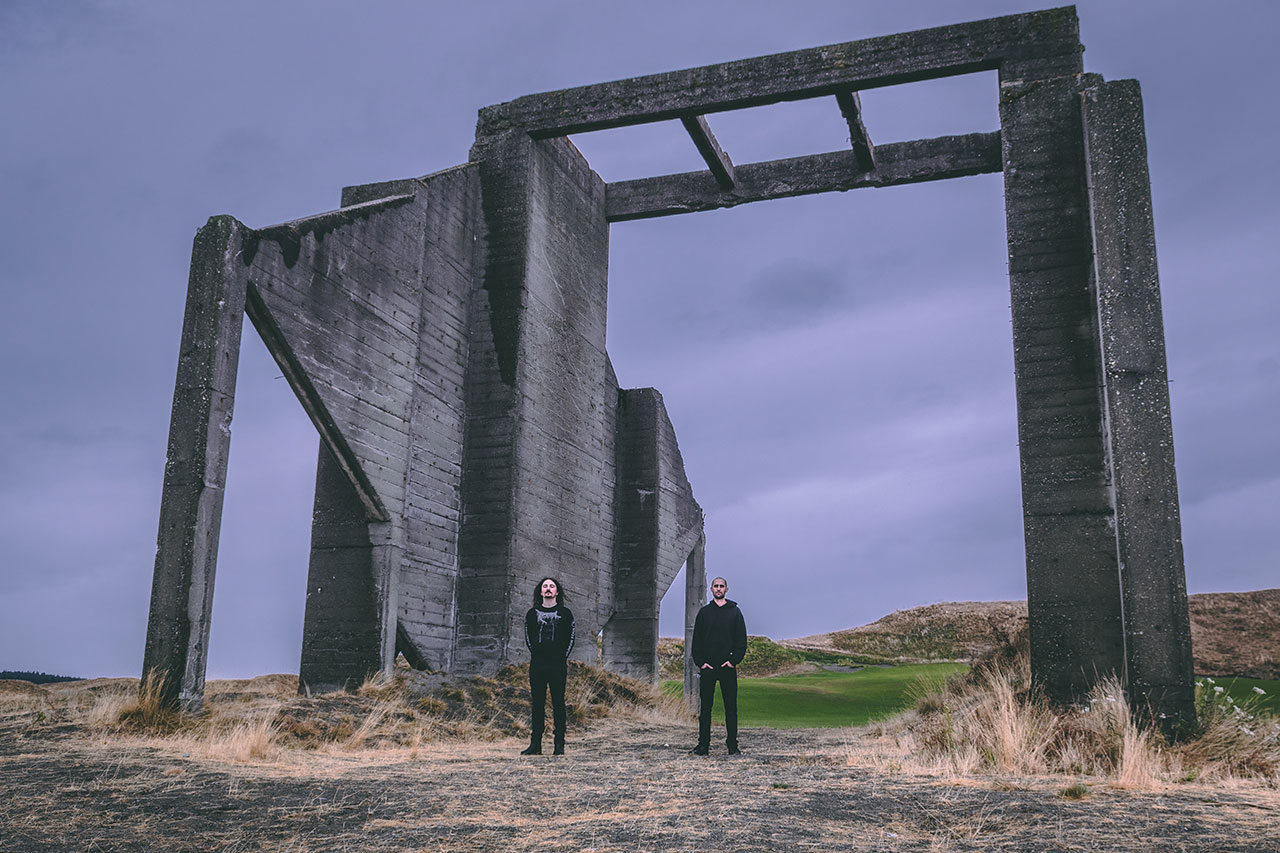
Adrian’s passing must have hit you hard. How did that affect the recording of Mirror Reaper, did it give you a means to address your feelings about him, and did it open up other avenues of expression within the album?
Dylan: “Initially it slowed down the writing process, as Jesse and I were both close with him and needed time to understand what had happened. There was a lot of attention given to his death through a lot of public avenues, which I found difficult. While there was no hint of ill intention and an overwhelming amount of support from everyone involved, I felt like I was having to mourn his loss in a very public manner from all the attention I got in response to it. For me, this was very hard. Adrian and I were in a rough patch in our relationship and there was an element of wondering what my role in his life was at the time of his death. Did he have hope that we would someday overcome the things that had disconnected us? Had he utterly succumbed to his own demons? If there can be best friends, I would say he was mine for a significant and important part in my life. What role did I have and/or fail to have in helping him cope with the things he needed in a friend? I wish we had been able to clear the air between us before one or the other of us was gone. I like to think something of the source of these questions came out in the song. I wanted them to for both of our sakes.”
Jesse: “The death of Adrian truly hit home during the writing and recording of this album. I still get upset sometimes when I listen to it. For me, his death made me really question my role and function in the band. Should I continue playing? Do I deserve to continue playing? How do I function as a member of the band while being a supportive friend to Dylan? All these questions and feelings eventually manifested themselves into wanting to make this album special, but also distinguishable from the previous records in terms to my approach and function in the band. Adrian and I were on good terms at the time of his death, and I believe he would be proud of our achievements if he could see them.”
Death, spirits, and, I imagine, cycles play a strong part of Bell Witch – and the artwork for Mirror Reaper too. Do you see these themes as aspects of consciousness, awareness of your environment, dynamics that are within us or beyond? Do you feel with Bell Witch that you’re channelling or communing with something outside yourselves?
Dylan: “I would say that demons and spirits are metaphorical figures we use to represent various fears and or hardships throughout our lives. Likewise, life can be viewed as having various and multiple cycles that are always coming and going. In this regard, I would say with Bell Witch, or anything we encounter throughout our lives, we’re communing with something within our own selves. If there is a connection or communication from that point outward with something more collective in or beyond us, I’m afraid it is beyond the lines of what I can say with conviction.”
Jesse: “I believe that music, more than any other artform, is the most uniquely transcendental expression a human can create. People in a vegetative state can still be moved, affected, and understand music. Unlike other more corporeal art forms, such as painting, musical inherently comes from the unique innards of the creator. While the outside world may be an influence for the creator, the creation comes from within. Whether that transcendence is channeling something outside ourselves is beyond my understanding. In that regard, we have succeeded if even one other person outside ourselves is moved or can connect with the music in a meaningful way.”
Bell Witch play the following dates:
March 16 - St Petersburg RU @ Zoccolo 2.0 Club
March 17 - Moscow RU @ Model T Club
March 19 - Freiburg DE @ Slow Club
March 21 - Barcelona ES @ Rocksound
March 22 - Madrid ES @ Wurlitzer Ballroom
March 23 - Cartaxo PT @ Cartaxo Session
March 24 - Viana do Castelo PT @ Vibe
March 25 - Groove ES @ Portugalete
March 26 - Bordeaux FR @ VOID*
March 27 - Paris FR @ Backstage*
March 28 - Bristol UK @ Exchange*
March 29 - Glasgow UK @ Nice N Sleazy*
March 30 - Manchester UK @ Rebellion*
March 31 - London UK @ Boston Music Room*
April 1 - Haarlem NL @ Patronaat*
April 2 - Bruxelles BE @ mag4*
April 3 - Hamburg DE @ Hafenklang*
April 4 - Copenhagen DK @ Pumpehuset*
April 5 - Oslo NO @ Blitz*
April 6 - Gothenburg SE @ Truckstop Alaska*
April 7 - Stockholm SE @ Kraken*
April 8 - Malmo SE @ Plan B*
April 9 - Berlin DE @ Urban Spree*
April 10 - Prague CZ @ 007
April 11 - Wien AT @ Viper Room
April 12 - Krakow PL @ Warsztat
April 13 - Wroclaw PL @ CRK
April 14 - Warsaw PL @ Poglos
April 17 - Budapest HU @ A38**
April 18 - Linz AT @ Kapu**
April 19 - Karlsruhe DE @ Dude Fest Warmup**
April 20 - Leipzig DE @ Doom Over Leipzig
April 21 - Tilburg NL @ Roadburn
April 22 - Tilburg NL @ Roadburn
April 26 - Tel Aviv IS @ Gargarin
* w/ Monarch!
** w/ Aerial Ruin
